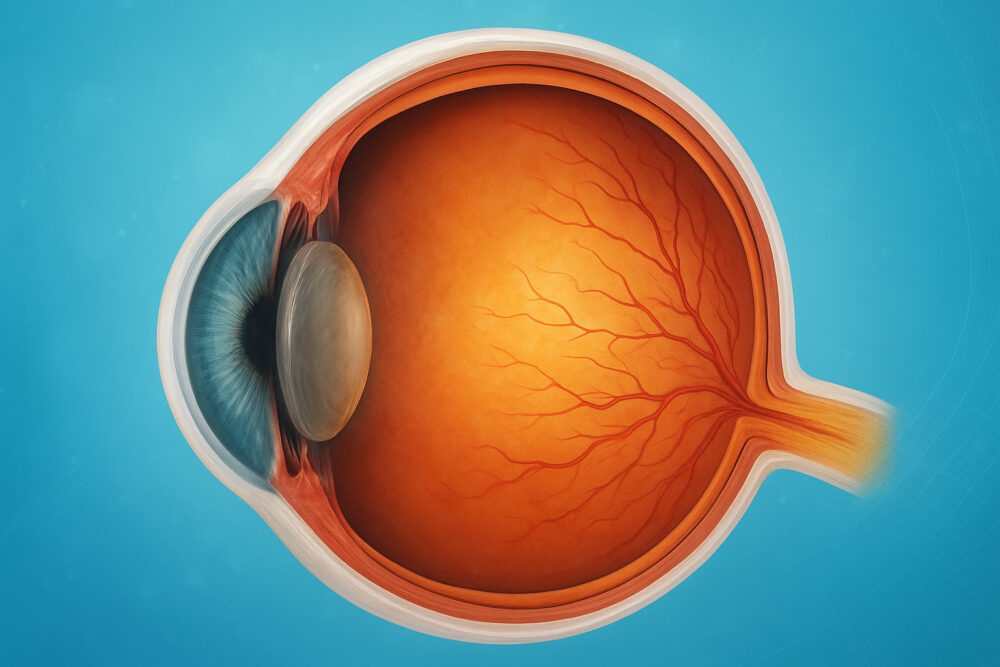WASHINGTON (SOA) — Growing concerns are emerging over a possible severe side effect tied to widely used diabetes and weight-loss medications such as Ozempic. Patients have come forward claiming the drugs may cause sudden and irreversible blindness — a risk many say they were never warned about. One Maryland resident, Todd Engel, shared his story exclusively with Spotlight on America, describing how his life was turned upside down after losing his vision.
Todd, 62, is now adjusting to living without sight. “It’s been a catastrophic adjustment. I can’t drive. I lost my job,” he said, seated next to his wife Shelley, his partner of 41 years.
He recalled the morning when everything changed: “I woke up, and I was blind. Just like that. Overnight. I was terrified.”
The couple admits the transition has been emotionally and physically overwhelming. Their home has been retrofitted with accessibility features — including braille-like markers on appliances and voice-controlled technology — but the loss has been profound. “What I miss most is being able to see my wife’s beautiful face every day,” Todd shared tearfully.
A rare condition: NAION

Todd’s vision loss was traced to a condition called Nonarteritic Anterior Ischemic Optic Neuropathy (NAION), a rare disorder caused by restricted blood flow to the optic nerve. Initially, only his right eye was affected, a few months after he began using Ozempic in September 2023. At the time, neither Todd nor his doctors were aware of the potential link between GLP-1 drugs and NAION, so he continued with the treatment.
Ten months later, his left eye also went dark. “Every test came back normal. The only common factor was Ozempic,” Shelley explained.
Emerging research has since raised alarms. A Harvard study in July 2024 suggested patients with diabetes taking semaglutide — the active ingredient in Ozempic, Wegovy, and Rybelsus — faced a fourfold higher risk of NAION. Obese patients were found to have a sevenfold risk. A Danish study later that year also indicated double the risk for diabetics. Still, other studies reported either no significant risk or only modest increases, leaving the data inconclusive.
Regulators respond
Amid the uncertainty, European health authorities have moved cautiously. In mid-2024, the European Medicines Agency (EMA) recommended updating product labels for semaglutide drugs to include NAION as a “very rare” side effect. The EMA further advised patients to seek urgent medical attention if they experience sudden or worsening vision problems.
The World Health Organization (WHO) also issued a safety alert, recommending that semaglutide’s risk management plan be revised to recognize NAION as a potential danger. Meanwhile, in the U.S., the FDA has launched a Sentinel study to examine whether GLP-1 drugs increase the likelihood of sudden blindness.
Patients push for stronger warnings
For Todd Engel and nearly two dozen others who have filed lawsuits, the lack of specific warnings feels like a betrayal. While Ozempic commercials mention possible “vision changes,” there is no direct reference to NAION.
Consumer attorney Grace Chandler, representing the Engels, argues that the warning is inadequate. “This is not just vision changes. NAION causes permanent, irreversible blindness,” she said.
Novo Nordisk, the maker of Ozempic, declined an interview but stated that current evidence does not establish a causal link between semaglutide and NAION. The company emphasized that patient safety is a priority and pledged ongoing collaboration with regulators. It also confirmed plans to update European labeling in line with EMA’s recommendations but maintains that the overall benefit-risk profile of semaglutide remains favorable.
A call for transparency
For the Engels, the fight is personal. “I don’t want this to happen to anyone else,” Todd said. Shelley added, “There’s no going back. He’s blind forever.”
Their message is clear: patients deserve transparent information about the risks, no matter how rare, so they can make informed choices about their treatment.















